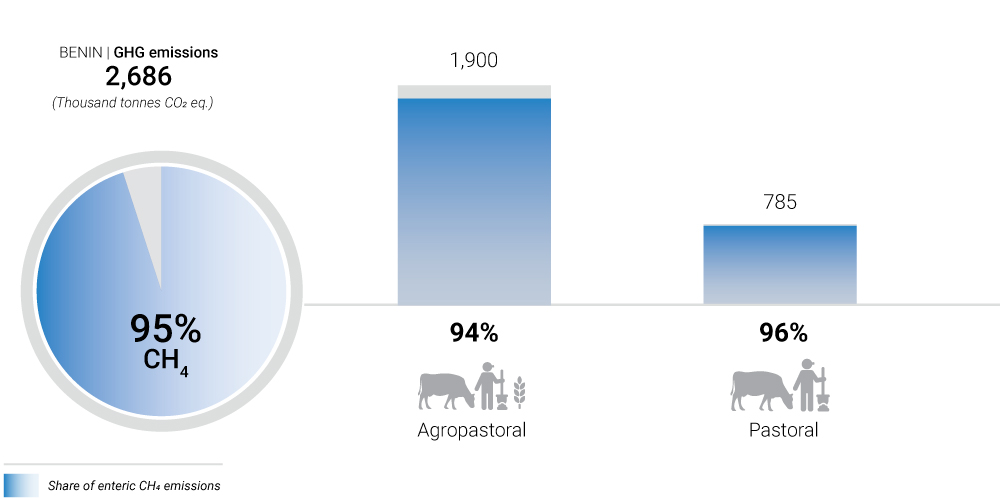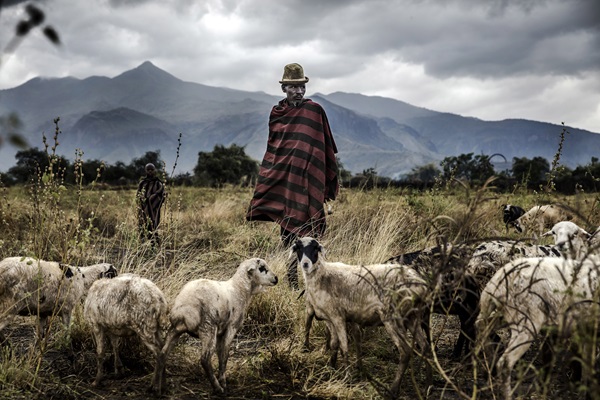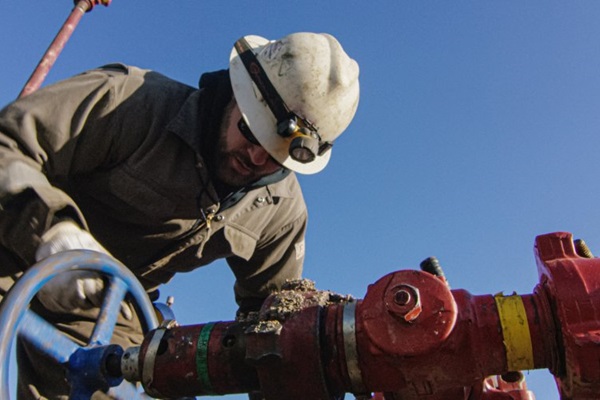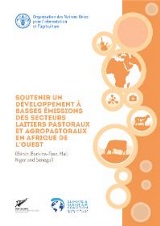
CD_Benin
- 12.5 million
Human population - 28.8 million
Livestock population - 79% Chickens, 9% Cattle, 7% Goats and 5% other
Livestock composition - 27.1 percent
Agriculture, forestry, and fishing, value added (% of GDP)
Overview
In Benin, more than 260 thousand dairy cows produced 113 million litres of milk in 2013. The northern part of the country hosts the vast majority of farms in both pastoral and agro-pastoral production systems. Almost 90 percent of milk production comes from agro-pastoral systems, which also have higher yields than pastoral systems.
Baseline greenhouse gas emissions
The dairy sector was responsible for 2.7 million tonnes carbon dioxide equivalent (CO2-eq.) of greenhouse gas emissions in 2013. Over 70 percent of these emissions came from agropastoral systems and enteric methane was by far the dominant source (95 percent). The emission intensities were 18 kg CO2-eq. per kilograms of fat and protein corrected milk (FPCM) in agropastoral systems and 55 kg CO2-eq/kg FPCM in pastoral systems
Mitigation interventions
Measures aimed at improving feeding and animal genetics showed the highest potential to decrease emission intensity in both pastoral and agropastoral production systems. The use of cowpea hay, for instance, contributed to improving feed quality and availability. Combining different interventions would help Benin reduce emissions intensities by 35 percent in pastoral systems and 34percent in agropastoral systems. These interventions would have co-benefits for farmers’ income and resilience as the better management of seasonal availability and digestibility of feed resources could also help Benin face long-term fluctuations caused by climate change.






